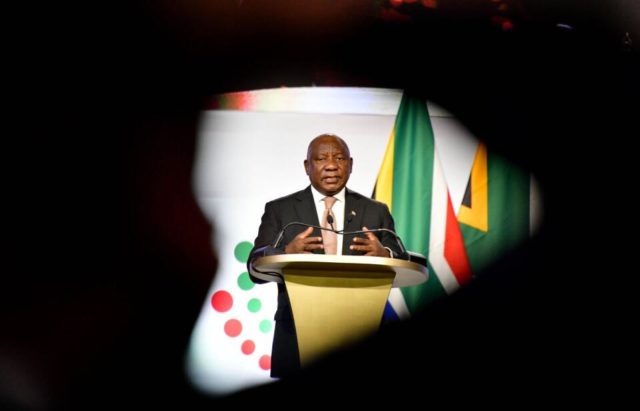South Africa this week moved with determination to show the investor community that the country was open for economic activity and investment opportunities.
SOUTH Africa this week moved with determination to show the investor community that the country was open for economic activity and investment opportunities.
This comes as the government finally opened up the economy by further easing the remainder of the lockdown restrictions, including allowing large gatherings and relaxing Covid-19 regulations for travellers.
President Cyril Ramaphosa on Tuesday said the economy was returning to full operation as fewer people were becoming severely ill and requiring hospitalisation, due to 60 to 80 percent of the population having some form of immunity.
Ramaphosa, however, underlined that the end of the National State of Disaster did not mean the end of the pandemic.
“It means that we are opening our economy still further, and that we are resuming many of the social and cultural activities that we have missed over the last two years,” he said.
The lifting of restrictions were roundly applauded by the business community, especially the tourism and hospitality sectors.
However, Business Leadership SA (BLSA) said on Friday that the easing of restrictions could have come much earlier, considering the negative impact on the economy, especially the tourism and hospitality sectors, of the Covid lockdowns.
“We need to be able to operate at full efficiency for them to contribute to a broader economic recovery that is struggling to get going,” it said.
Investors, however, passed a big vote of confidence in South Africa’s recovery this week after the loss of two million jobs from the pandemic, and pledged to invest further in a variety of projects in the country.
The fourth annual South African Investment Conference (SAIC) – to raise R1.2 trillion over a five-year period – on Thursday raised a further R332 billion from 80 investment pledges
This has now taken the total level of investment pledged at the four Investment Conferences to R1.14trillion, meaning that the government has now reached 95 percent of its ambitious target with just one year left to go.
“What this means is that we are now only R60 billion short of our target. I expect that by next year we will not just reach our target – we will exceed it,” Ramaphosa said.
He said ongoing reforms to the energy sector included changes to Eskom and additional generation capacity mainly through wind and solar sources of energy.
Eskom was given a R6bn boost to support energy transition from coal to renewable energy without getting into debt in a bid to boost investment, economic growth and create jobs.
The African Development Bank (AfDB) pledged a $2.8bn (R41.3bn) package for the country over the next five years, with some $400 million over the next three years going to Eskom.
AfDB President Dr Akinwumi Adesina, said the bank was working with international partners, especially the G7 countries, to establish a just energy transition facility that will support South Africa in raising at least $27bn.
“It is a great opportunity to recalibrate the economy to generate thousands of green jobs and power new green industries for a more competitive economy for South Africa,” Adesina said.
“We will do it without South Africa going into debt…We know South Africa is bankable.”
To put the icing on the cake, the SA Reserve Bank (SARB) forecast a positive growth outlook, saying that the economy was now expected to grow by 2 percent this year up from 1.7 percent.
The bank, however, tightened its monetary policy by hiking interest rates for the third consecutive time to 4.25 percent as the inflation outlook was assessed on the upside, particularly due to higher food and oil prices which are impacted by the Russia/Ukraine war.
Nedbank economist Isaac Matshego said the SARB expected a boost from a positive terms-of-trade effect to support economic growth.
“However, we believe that the impact of higher global prices is likely to be higher than the benefit from the gains in prices of South Africa’s essential export commodities,” Matshego said.
“As a result, we maintain our growth forecast of 1.7 percent in 2022.”
– BUSINESS REPORT








